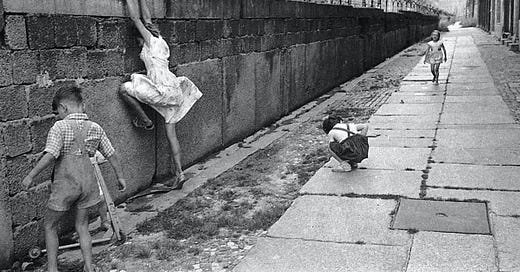The importance of breaking the rules
Why breaking the profession's rules is something we should all be thinking about
One of the questions that Physiotherapy Otherwise grapples with is how much physiotherapists now need to break the profession’s rules if it’s to prosper in the future. There are some different dimensions to this question that get explored in the book.
One is the necessity to have rules in the first place. Rules provide the boundary around a profession and help to shape its identity. But they are only part of what defines a profession, and they shouldn’t be seen as natural or obvious.
The German philosopher Freidrich Nietzsche was fascinated by social rules, but he argued that they were neither natural nor obvious and more often than not they stopped us from doing the right thing by tying us to a belief system that was more about maintaining a social hierarchy.
Nietzsche believed that we all too easily adopted a ‘slave morality’ - an easy, unquestioning acceptance of goodness; beliefs based on social rules handed down through the generations, giving them the illusion that they were natural and immutable.
Nietzsche’s argument has been applied to all sorts of fields over the last century. The philosopher Martin Buber suggested that ‘Traditional Judaism held that living according to law was a source and an expression of spiritual fervor’, but that was a reason to reject the dogmatic obedience these laws prescribed rather than embracing them.
“Once religious rites and dogmas have become so rigid that religiosity cannot move them or no longer wants to comply with them”, he said, “religion becomes uncreative and therefore untrue,”
Buber believed that when our beliefs about what is right become entrenched they define particular truths that separate one group from another. It is only a short step then to create a binary in which those within the group are ‘good’ and everything outside is bad.
Interestingly, Buber’s answer was not to abandon their Judaism but to reinvent it (link).
In talks I’ve given over the last couple of years I’ve included a picture of a young girl scaling the Berlin Wall. Most people who know anything about the history of The Wall might applaud her act of rebellion. But whether she is a freedom fighter or a dangerous renegade depends entirely on which side of the wall you’re standing on. But the problem isn’t with your position, it’s with the existence of the wall in the first place. And all such walls are human constructs.
Physiotherapy Otherwise is, in many ways, an argument for a) questioning the socially-constructed rules that have long shaped the physiotherapy profession, and then b) subverting them.
It’s unusual for people within a prestigious profession to do this because it strikes at everything a slave morality seeks to uphold. But, right now, I can’t think of a more important task, if we truly believe that the physical therapies matter.
Two last things.
2022 marks the end of Scott Hasson’s tenure as Editor of the journal Physiotherapy Theory & Practice. I’d like to take this opportunity to thanks Scott for the amazing work he’s done promoting the theoretical development of the profession. 15 years ago it was almost impossible to publish theory pieces in the physiotherapy literature, and there’s still a skepticism of anything that’s not a clinical trial in the minds of many journal editors. But Scott’s advocacy of thinking about physiotherapy has been crucial in opening up the profession to new ideas over the last quarter-century and he will be sorely missed. His sign-off editorial is here.
And finally something very light hearted. If you fancy using AI technology to make a quick piece of physiotherapy art, you should try this online tool. It generates an image based on a particular style and a series of word prompts. You choose the words and the style and the programme makes the art. Here’s my baroque rendering based on the words massage, touch, and therapy. Perhaps I’ll stick to teaching.





